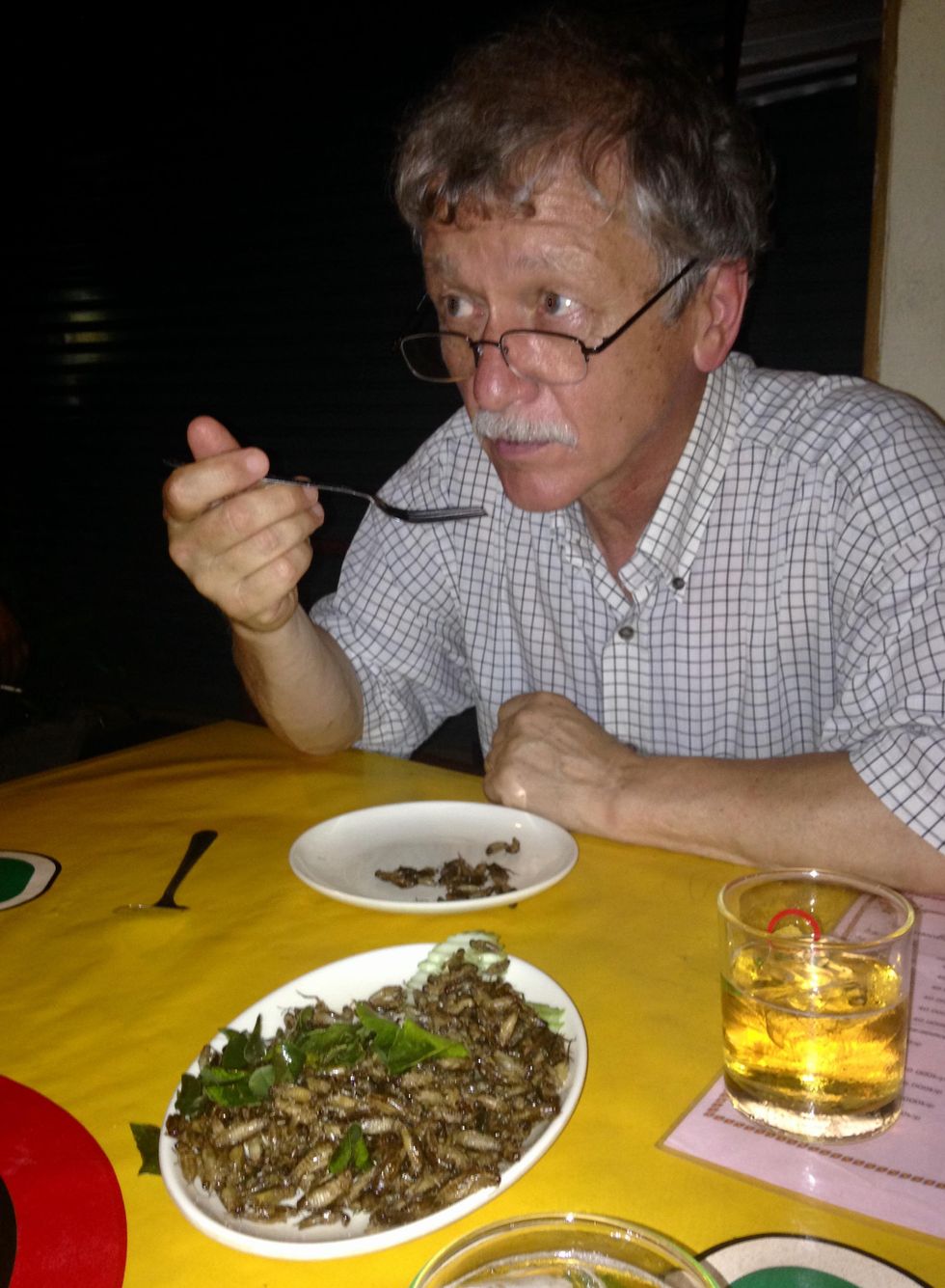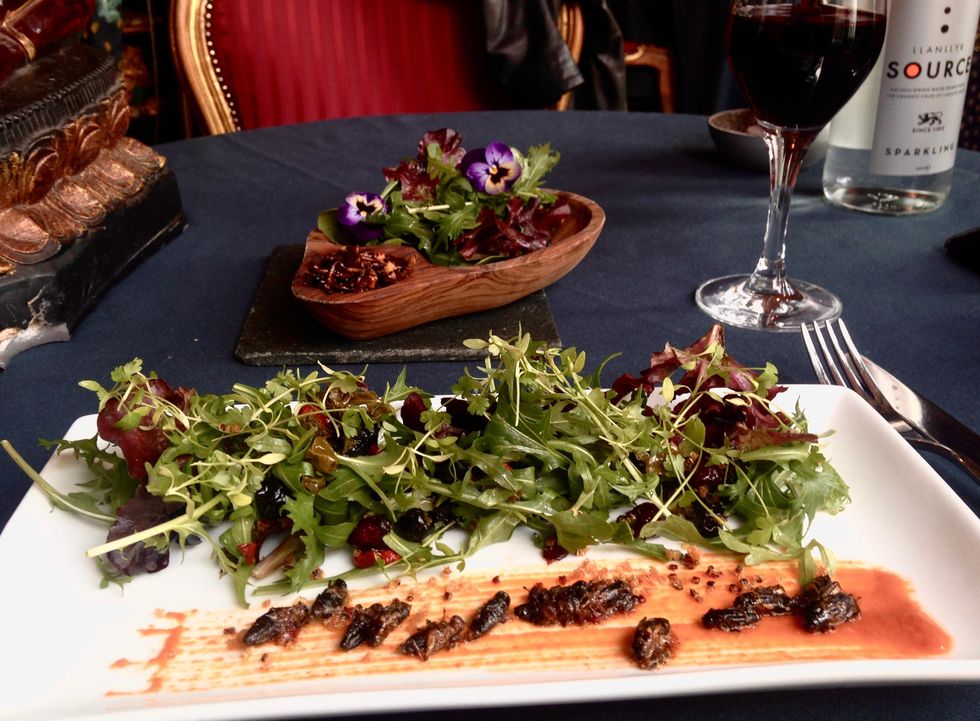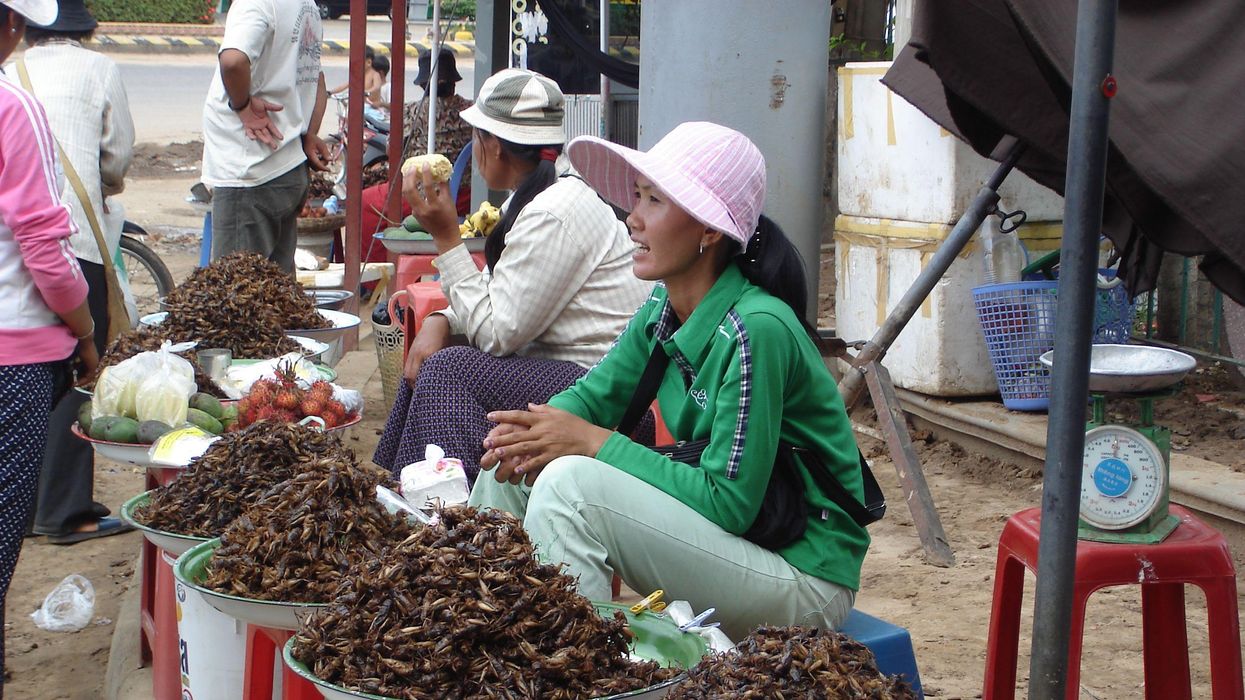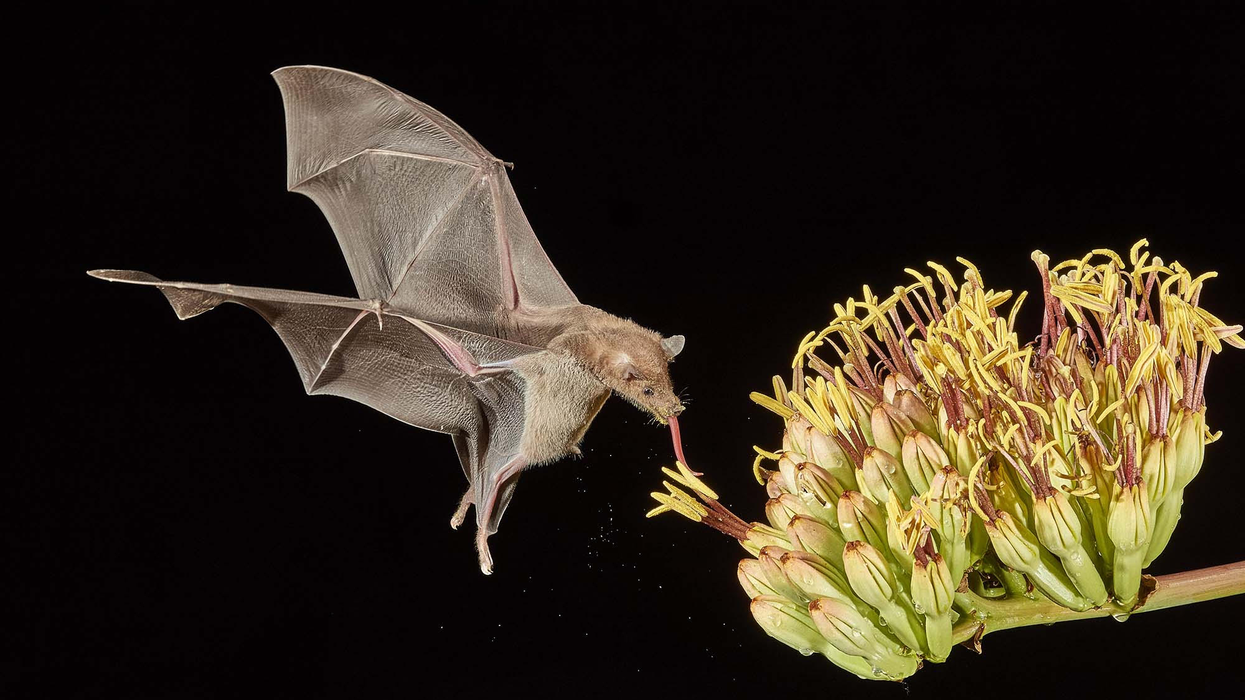In China, Prisoners of Conscience Are Being Murdered for Their Organs to Fuel Transplant Tourism

A somber photo of the Great Wall of China.
Organ transplantation can dramatically improve or save lives. A heart transplant can literally give a person a new lease of life, while a kidney transplant frees the recipient from lengthy spells on dialysis.
A people's tribunal in London has recently found that in China, organs are sourced from prisoners of conscience who are killed on demand to fuel the lucrative organ transplantation market.
To protect the integrity of organ transplantation, there are strict ethical guidelines. When organs are sourced from deceased persons, the donation must be voluntary, donors must die naturally before any organs are taken, and death must not be hastened to provide organs. These ethical guidelines protect donors and provide assurance to transplant recipients that their organs have been sourced ethically.
However, not all countries follow these ethical guidelines. A people's tribunal in London has recently found that in China, organs are sourced from prisoners of conscience who are killed on demand to fuel the lucrative organ transplantation market. This conclusion, reported at the United Nations Human Rights Council on September 24, was not reached lightly.
The independent China Tribunal, made up of four human rights lawyers, one surgeon with transplant experience, an academic who specialises in China studies and a businessman with human rights interests, spent over a year looking at written materials and heard evidence from over 50 witnesses in five days of hearings. Their grim conclusion, that prisoners of conscience are murdered for their organs, confirms the findings of earlier investigations.
Questions first arose over China's transplant system when the numbers of transplants rose dramatically after 2000. Transplant capacity rapidly increased; new infrastructure was built and staff were trained. Hospital websites offered livers, hearts and kidneys available in a matter of days or weeks, for a price. Foreigners were encouraged to come to China to avoid lengthy transplant waiting lists in their home countries.
At the time, it was a mystery as to how China had a ready supply of organs, despite having no volunteer donation system. Eventually, in 2006, the Chinese government stated that organs were removed from prisoners who had been found guilty and sentenced to the death penalty. But this explanation did not ring true. Death row prisoners often have poor health, including high rates of infectious diseases, making them poor candidates for donation. By contrast, the organs offered for sale were promised to be healthy.
In 2006, the first clues about the source of the organs emerged. A woman called Annie reported that her surgeon husband had been present during organ removal from Falun Gong practitioners who were still breathing as the scalpels cut into them. A subsequent investigation by two Canadian human rights lawyers examined multiple sources of evidence, concluding that murdered Falun Gong practitioners were indeed the source of the organs.
The evidence included testimony from practitioners who had been imprisoned, tortured, and later released. During imprisonment, many practitioners reported blood and other medical tests examining the health of their organs—tests that were not performed on any other prisoners. Phone calls made to Chinese hospitals by investigators posing as patients were offered rapid access to fresh organs from Falun Gong practitioners. The organs were guaranteed to be healthy, as the practice forbids smoking tobacco and drinking alcohol.
Since 2006, evidence has continued to accumulate. China has a huge transplant industry and no plausible source of voluntary organ donations. Unlike the rest of the world, Chinese waiting times remain very short. Foreigners continue to come to China to avoid lengthy waiting lists. Prisoners of conscience, including Tibetans and Uyghurs as well as Falun Gong practitioners, are still being imprisoned and medically tested.
The Chinese government continues to deny these crimes, claiming that there is a volunteer donor system in place.
The China Tribunal heard from Uyghur witnesses who had recently been inside the notorious labour camps (also called "re-education" centers) in Xin Xiang. The witnesses reported terrible conditions, including overcrowding and torture, and were forced to have medical examinations. They saw other prisoners disappear without explanation following similar medical tests. As recently as 2018, doctors in Chinese hospitals were promising potential patients healthy Falun Gong organs in taped phone calls.
The Chinese government continues to deny these crimes, claiming that there is a volunteer donor system in place. In the Chinese system, prisoners are counted as volunteers.
China's forced organ harvesting from prisoners of conscience has international implications. A recent study found that most published Chinese transplant research is based on organs sourced from prisoners. International ethical guidance prohibits taking organs from prisoners and prohibits publication of research based on transplanted material from prisoners. The authors of that study called for retractions of the papers, some of which are in well-known scientific journals. So far Transplantation and PLOS One are among the journals that have already retracted over twenty articles in response. On questioning from the editors, the authors of the papers failed to respond or could not verify that the organs in the transplant research came from volunteers.
The international community has a moral obligation to act together to stop forced organ harvesting in China.
The China Tribunal concluded that forced organ harvesting remains China's main source of transplant organs. In their view, the commission of Crimes Against Humanity against the Uyghurs and Falun Gong has been proved beyond reasonable doubt. By their actions, the Chinese government has turned a life-saving altruistic practice into our worst nightmare. The international community has a moral obligation to act together to stop forced organ harvesting in China, and end these crimes against humanity.
Why we should put insects on the menu
Insects for sale at a market in Cambodia.
I walked through the Dong Makkhai forest-products market, just outside of Vientiane, the laid-back capital of the Lao Peoples Democratic Republic or Lao PDR. Piled on rough display tables were varieties of six-legged wildlife–grasshoppers, small white crickets, house crickets, mole crickets, wasps, wasp eggs and larvae, dragonflies, and dung beetles. Some were roasted or fried, but in a few cases, still alive and scrabbling at the bottom of deep plastic bowls. I crunched on some fried crickets and larvae.
One stall offered Giant Asian hornets, both babies and adults. I suppressed my inner squirm and, in the interests of world food security and equity, accepted an offer of the soft, velvety larva; they were smooth on the tongue and of a pleasantly cool, buttery-custard consistency. Because the seller had already given me a free sample, I felt obliged to buy a chunk of the nest with larvae and some dead adults, which the seller mixed with kaffir lime leaves.
The year was 2016 and I was in Lao PDR because Veterinarians without Borders/Vétérinaires sans Frontières-Canada had initiated a project on small-scale cricket farming. The intent was to organize and encourage rural women to grow crickets as a source of supplementary protein and sell them at the market for cash. As a veterinary epidemiologist, I had been trained to exterminate disease spreading insects—Lyme disease-carrying ticks, kissing bugs that carry American Sleeping Sickness and mosquitoes carrying malaria, West Nile and Zika. Now, as part of a global wave promoting insects as a sustainable food source, I was being asked to view arthropods as micro-livestock, and devise management methods to keep them alive and healthy. It was a bit of a mind-bender.
The 21st century wave of entomophagy, or insect eating, first surged in the early 2010s, promoted by a research centre in Wageningen, a university in the Netherlands, conferences organized by the Food and Agriculture Organization of the United Nations, and enthusiastic endorsements by culinary adventurers and celebrities from Europeanized cultures. Headlines announced that two billion people around the world already ate insects, and that if everyone adopted entomophagy we could reduce greenhouse gases, mitigate climate change, and reign in profligate land and water use associated with industrial livestock production.
Furthermore, eating insects was better for human health than eating beef. If we were going to feed the estimated nine billion people with whom we will share the earth in 2050, we would need to make some radical changes in our agriculture and food systems. As one author proclaimed, entomophagy presented us with a last great chance to save the planet.
In 2010, in Kunming, a friend had served me deep-fried bamboo worms. I ate them to be polite. They tasted like French fries, but with heads.
The more recent data suggests that the number of people who eat insects in various forms, though sizeable, may be closer to several hundreds of millions. I knew that from several decades of international veterinary work. Sometimes, for me, insect eating has been simply a way of acknowledging cultural diversity. In 2010, in Kunming, a friend had served me deep-fried bamboo worms. I ate them to be polite. They tasted like French fries, but with heads. My friend said he preferred them chewier. I never thought about them much after that. I certainly had not thought about them as ingredients for human health.
Is consuming insects good for human health? Researchers over the past decade have begun to tease that apart. Some think it might not be useful to use the all-encompassing term insect at all; we don’t lump cows, pigs, chickens into one culinary category. Which insects are we talking about? What are they fed? Were they farmed or foraged? Which stages of the insects are we eating? Do we eat them directly or roasted and ground up?
The overall research indicates that, in general, the usual farmed insects (crickets, locusts, mealworms, soldier fly larvae) have high levels of protein and other important nutrients. If insects are foraged by small groups in Laos, they provide excellent food supplements. Large scale foraging in response to global markets can be incredibly destructive, but soldier fly larvae fed on food waste and used as a substitute for ground up anchovies for farmed fish (as Enterra Feed in Canada does) improves ecological sustainability.
Entomophagy alone might not save the planet, but it does give us an unprecedented opportunity to rethink how we produce and harvest protein.

The author enjoys insects from the Dong Makkhai forest-products market, just outside of Vientiane, the capital of the Lao Peoples Democratic Republic.
David Waltner-Toews
Between 1961 and 2018, world chicken production increased from 4 billion to 20 billion, pork from 200 million to over 100 billion pigs, human populations doubled from 3.5 billion to more than 7 billion, and life expectancy (on average) from 52 to 72 years. These dramatic increases in food production are the result of narrowly focused scientific studies, identifying specific nutrients, antibiotics, vaccines and genetics. What has been missing is any sort of peripheral vision: what are the unintended consequences of our narrowly defined success?
If we look more broadly, we can see that this narrowly defined success led to industrial farming, which caused wealth, health and labor inequities; polluted the environment; and created grounds for disease outbreaks. Recent generations of Europeanized people inherited the ideas of eating cows, pigs and chickens, along with their products, so we were focused only on growing them as efficiently as possible. With insects, we have an exciting chance to start from scratch. Because, for Europeanized people, insect eating is so strange, we are given the chance to reimagine our whole food system in consultation with local experts in Asia and Africa (many of them villagers), and to bring together the best of both locally adapted food production and global distribution.
For this to happen, we will need to change the dietary habits of the big meat eaters. How can we get accustomed to eating bugs? There’s no one answer, but there are a few ways. In many cases, insects are ground up and added as protein supplements to foods like crackers or bars. In certain restaurants, the chefs want you to get used to seeing the bugs as you eat them. At Le Feston Nu in Paris, the Arlo Guthrie look-alike bartender poured me a beer and brought out five small plates, each featuring a different insect in a nest of figs, sun-dried tomatoes, raisins, and chopped dried tropical fruits: buffalo worms, crickets, large grasshoppers (all just crunchy and no strong flavour, maybe a little nutty), small black ants (sour bite), and fat grubs with a beak, which I later identified as palm weevil larvae, tasting a bit like dried figs.
Some entomophagy advertising has used esthetically pleasing presentations in classy restaurants. In London, at the Archipelago restaurant, I dined on Summer Nights (pan fried chermoula crickets, quinoa, spinach and dried fruit), Love-Bug Salad (baby greens with an accompanying dish of zingy, crunchy mealworms fried in olive oil, chilis, lemon grass, and garlic), Bushman’s Cavi-Err (caramel mealworms, bilinis, coconut cream and vodka jelly), and Medieaval Hive (brown butter ice cream, honey and butter caramel sauce and a baby bee drone).

The Archipelago restaurant in London serves up a Love-Bug Salad: baby greens with an accompanying dish of zingy, crunchy mealworms fried in olive oil, chilis, lemon grass, and garlic.
David Waltner-Toews
Some chefs, like Tokyo-based Shoichi Uchiyama, try to entice people with sidewalk cooking lessons. Uchiyama's menu included hornet larvae, silkworm pupae, and silkworms. The silkworm pupae were white and pink and yellow. We snipped off the ends and the larvae dropped out. My friend Zen Kawabata roasted them in a small pan over a camp stove in the street to get the "chaff" off. We made tea from the feces of worms that had fed on cherry blossoms—the tea smelled of the blossoms. One of Uchiyama-san’s assistants made noodles from buckwheat dough that included powdered whole bees.
At a book reading in a Tokyo bookstore, someone handed me a copy of the Japanese celebrity scandal magazine Friday, opened to an article celebrating the “charms of insect eating.” In a photo, scantily-clad girls were drinking vodka and nibbling giant water bugs dubbed as toe-biters, along with pickled and fried locusts and butterfly larvae. If celebrities embraced bug-eating, others might follow. When asked to prepare an article on entomophagy for the high fashion Sorbet Magazine, I started by describing a clip of Nicole Kidman delicately snacking on insects.
Taking a page from the success story of MacDonald’s, we might consider targeting children and school lunches. Kids don’t lug around the same dietary baggage as the grownups, and they can carry forward new eating habits for the long term. When I offered roasted crickets to my grandchildren, they scarfed them down. I asked my five-year-old granddaughter what she thought: she preferred the mealworms to the crickets – they didn’t have legs that caught in her teeth.
Entomo Farms in Ontario, the province where I live, was described in 2015 by Canadian Business magazine as North America’s largest supplier of edible insects for human consumption. When visiting, I popped some of their roasted crickets into my mouth. They were crunchy, a little nutty. Nothing to get squeamish over. Perhaps the human consumption is indeed growing—my wife, at least, has joined me in my entomophagy adventures. When we celebrated our wedding anniversary at the Public Bar and Restaurant in Brisbane, Australia, the “Kang Kong Worms” and “Salmon, Manuka Honey, and Black Ants” seemed almost normal. Of course, the champagne helped.
In this episode of Making Sense of Science, my guest is Raina Plowright, a leading researcher when it comes to how and why viruses sometimes jump from bats to humans.
For this podcast episode, my guest is Raina Plowright, one of the world’s leading researchers when it comes to how and why viruses sometimes jump from bats to humans. The intuition may be that bats are the bad guys in this situation, but the real culprits are more likely humans and ways that we intrude on nature.
Plowright is a Cornell Atkinson Scholar and professor at Cornell in the Department of Public and Ecosystem Health in the College of Veterinary Medicine. Read her full bio here. For a shorter (and lightly edited) version of this conversation, you can check out my Q&A interview with Plowright in the single-issue magazine, One Health / One Planet, published earlier this month by Leaps.org in collaboration with the Aspen Institute and the Science Philanthropy Alliance.
In the episode, Plowright tells me about her global research team that is busy studying the complex chain of events in between viruses originating in bats and humans getting infected with those viruses. She’s collecting samples from bats in Asia, Africa and Australia, which sounds challenging enough, but now consider the diligence required to parse out 1400 different bat species.
We also discuss a high-profile paper that she co-authored last month arguing for greater investment in preventing pandemics in the first place instead of the current approach, which basically puts all of our eggs in the basket of trying to respond to these outbreaks after the fact. Investing in pandemic prevention is a small price to pay compared with millions of people killed and trillions of dollars spent during the response to COVID-19.
Listen to the Episode
Listen on Apple | Listen on Spotify | Listen on Stitcher | Listen on Amazon | Listen on Google

Raina Plowright, a disease ecologist at Cornell University, is taking blood and urine samples from hundreds of animals and using GPS tags to follow their movement.
Kelly Gorham

